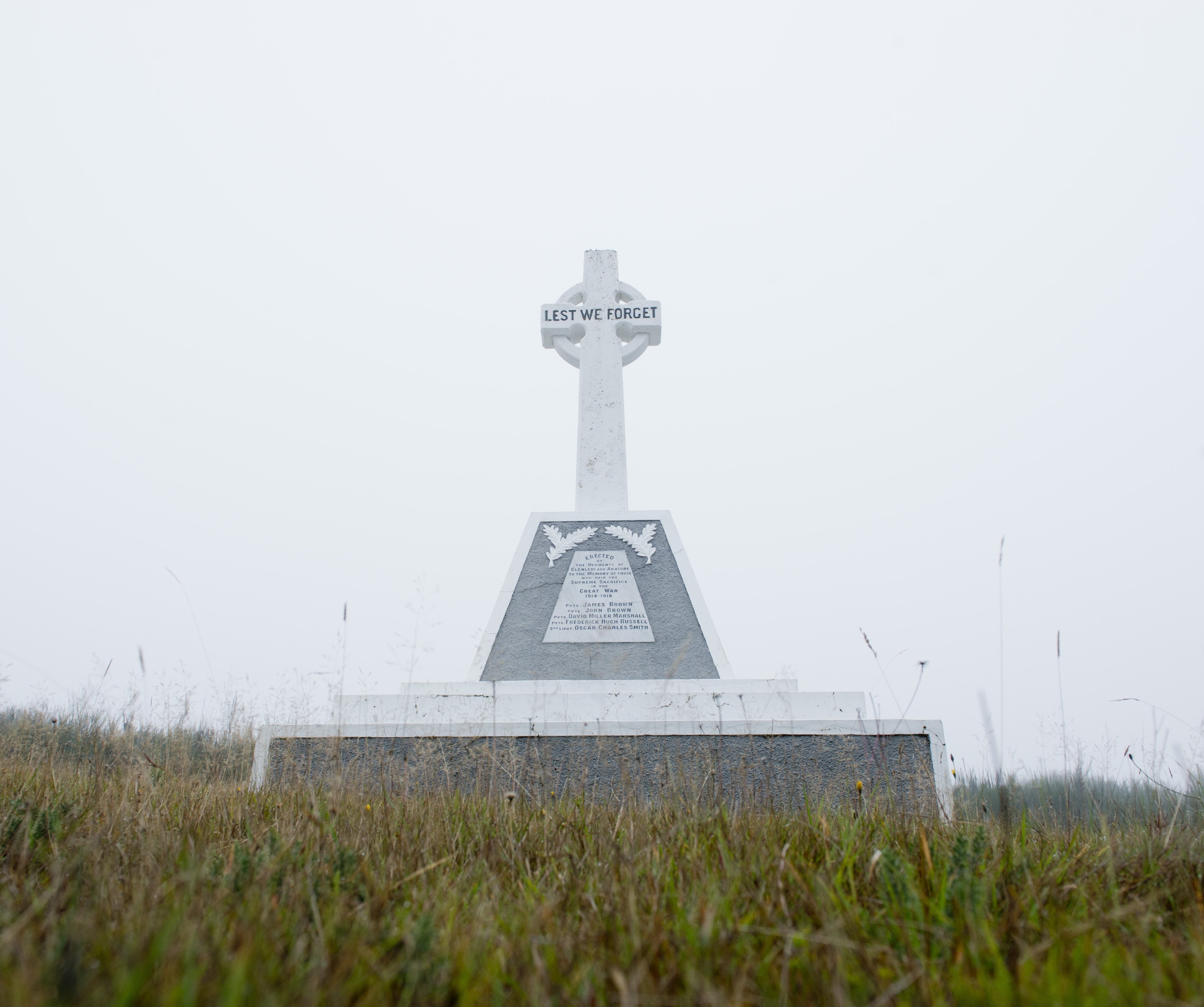
War has deprived thousands of southern families of loved ones, but not every war story involves a battlefield. Mike Houlahan explores the story of Otago farmer Frederick Hugh Russell.
About 5% of New Zealand soldiers who served overseas during World War 1 died from disease rather than any injury suffered on the battlefield.
Some of them, such as Glenledi farmer Frederick Hugh Russell, never got anywhere near a battle.
While his war story does not involve any feats of derring-do, any medals for heroism or notable achievements, it is still a story of a family which lost its only son, far from home while he was a member of the New Zealand army.

Frederick Hugh Russell, known as Frank, was born on May 11, 1884, the only child of Irish migrants Hugh and Agnes Russell.
The Russells farmed about 305ha at Glenledi (also known as Bull Creek), a tiny coastal hamlet east of Milton.
It is a very small place today and was not much larger when the Russells called it home ... but it still has five names listed on the memorial to the war dead of Glenledi and Akatore, including Frank.
James and John Brown are there, two of the four Brown brothers who went to war. So are Akatore engine driver David Marshall and Ida Valley school teacher Oscar Smith.
They were all killed in action.
Frank Russell, who was "of a quiet and unassuming disposition and universally esteemed", was a grudging soldier.
He did not volunteer to fight and his enlistment, like many New Zealanders, only came with the passing of the Military Service Act of 1916 which introduced conscription for any man aged between 20 and 45.
However, a limited appeals process existed and when Frank Russell’s number came up in the lottery he appealed to the Military Service Board.
On Tuesday April 17, 1917 the panel board heard appeals in Milton and Balclutha, and Messrs V. G. Day, A. S. Orbell, R. Breen and Captain E. D. Mosley had a busy day.
Telegraphist William Edwin Miles appealed on "serious" domestic grounds and had his case stood down; confectioner William Cathcart Latta was apprehensive of his father’s health but the board dismissed his appeal, referring to the family’s "comfortable home".

Frank Russell was the unwilling "star" of the show, his appeal being covered at length by the Bruce Herald and Otago Witness.
His misfortune was to be stuck between New Zealand’s need for its farmers to produce as much food as possible, and its army’s need for fit men to serve on the front.
Hugh Russell testified on behalf of his son, saying that the previous year his farm had produced 165 bags of wheat and 265 bags of oats, and that Frank was willing to plant another 20ha of wheat for the following year.
Frank was also learning to drive the farm’s traction engine, he said.
Frank’s lawyer, Mr Rutherford, offered evidence of how difficult it was for farmers to find labourers to bring in the harvest but that argument was given short-shrift by Mr Day, who said to Hugh Russell that he had known since last August that Frank would probably be called up, yet had done nothing about replacing him.
"You are not the only one who has left it to the last minute. Nearly every farmer tells us the same tale. They trust far too much to luck."
Not did Hugh Russell’s desperate plea that Frank was his only child elicit much sympathy.
"Well, I might inform you," Mr Day replied, "that two members of this board are in the same position. They each have a son at the front and both are wounded."
"If my son has to go all I can do is to knock off farming until he comes back," Mr Russell said.
"But you are an able-bodied man," Capt Mosley replied, "and did the ploughing last year. It seems to be a case of obstinacy."
And with that the board ruled that Frank Russell had to go to war, but delayed his call-up until June 14 so a referral to the Efficiency Board (which determined if conscriptees were essential workers) could be made.
If such an appeal was lodged it was unsuccessful, as the now Private Frank Russell signed his attestation forms that month and on June 24 he was posted to the specialists company of the 32nd Reinforcements.
He sailed from New Zealand on November 21 and on January 8 he was marched in to Sling Camp, the army’s Salisbury Plain training camp.
However, almost immediately Pte Russell contracted scarlet fever, a throat infection which normally affects children.
Today it is readily treatable with antibiotics, but with none available in 1918 the disease could cause lethal damage to the lymphatic system or the blood.

The Bruce Herald noted that he was of a retiring nature but a studious character, who enjoyed chemistry and mechanics and had erected a small laboratory and workshop on the family farm.
Whether through despair and an inability to work, Hugh Russell did not remain on his Glenledi farm for much longer; soon after Frank’s death he sold up and retired to Dunedin, where he bought a home in Canongate and died in 1924 aged 67.
Agnes Russell, who kept the Canongate home but moved to St Kilda, lived until 1939.
Both are buried in Andersons Bay cemetery, under a headstone which also commemorates their only child.












